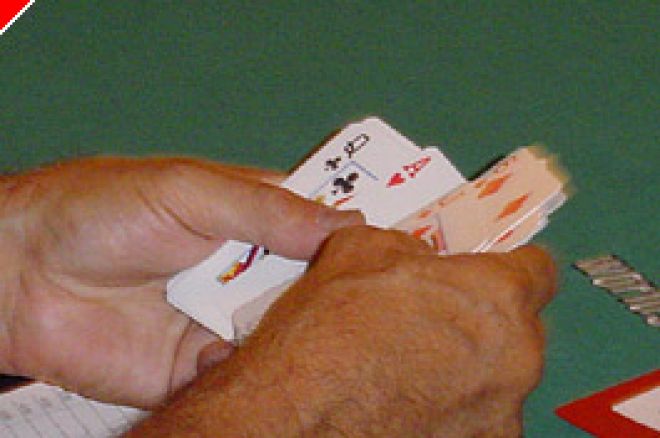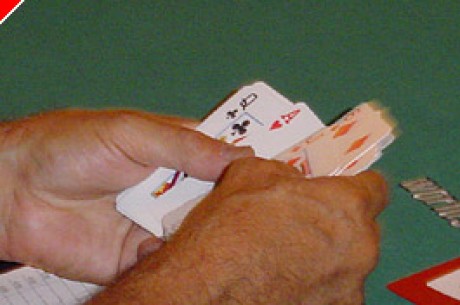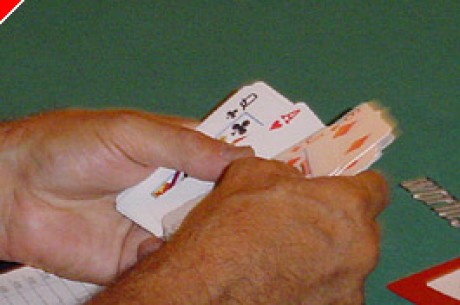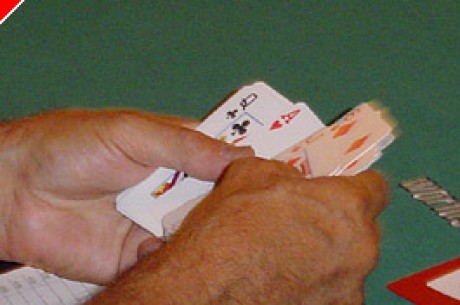Stud Poker Strategy - Relativity

You don't have to be an Einstein to play winning poker. Even so, an understanding of the laws of relativity can only serve to help you at the poker table.
The laws of relativity recognize that time and matter are not absolutes. As an object travels near the speed of light, time slows down, matter elongates, and colors shift. Hence, a space voyager who could travel at nearly the speed of light could fly a mission to a far off galaxy and back and barely age �C while hundreds or even thousands of years would elapse on earth.
Pretty wild stuff, no?
In poker the concept of relativity is much simpler and more tangible.
In a nutshell, it is this. The value of any hand is not absolute. It only exists relative to the situation it is in �C based on many factors including what your opponent or opponents have, what you know of them and their style of play, and what you know of what they know of you.
Let me give you some examples.
Here's a hand situation that came up the other night in a $10/20 stud game. I was dealt pocket Jacks with an unsuited Queen kicker. A guy to my left had the bring-in with a low value card. Everyone folded to a guy to my right who completed the bet with an 8 exposed. No 8s had been played. Two tens had been folded. No Jacks had been folded. One Queen had been folded.
I raised him. Everyone folded back to the guy with the 8. He called me.
On fourth street I hit a King. My opponent got an unsuited Ace.
My opponent wasn't a tricky player. He was a typical $10/20 player. Conventional. Maybe overly cautious if anything. I generally could bully him around because my image was so damn tight. I had stolen a couple of pots on third street with the biggest up card. He rarely challenged me when I was in a hand.
OK. Back to the hand. I have (JJ)QK. He has (xx)8A.
He is high on board. He bets.
Now here's where the laws of relativity come in. Under most circumstances I'm raising or at least calling my opponent who does this. I'm going to assume that he has the lead with the Ace and so will continue to bet it. He's either too slow-witted or two stubborn to give me credit for a better hand than he has �C with probably only a pair of 8s. And so I try to muscle my typical opponents out of the pot or �C at the very least �C win a free card on Fifth Street for my troubles.
But hand values are relative. And in this situation my Jacks �C hidden though they are �C have plummeted in value.
My straightforward opponent knows that I am a tight player �C not a wild player. I know that he thinks I never get out of line �C that if I bet it I have it. So when I raised on Third Street he knew that I had his 8s beaten (the truth is, of course, that I might not have had the Jacks, but he doesn't know that). He is also cautious and untricky. When he hit the Ace he wasn't thinking about what it would look like to me. He was thinking about what I was likely to have. If he wasn't sure what I had but thought I might have a bigger hand than he, then he would have checked his hand (in that respect he was very different from the typical $20/40 player who would almost surely bet the Ace no matter what he thought I had �C unless he went for a check raise �C but that's an article for another day).
So when he bet the Ace I knew, or nearly knew, that he had paired an Ace in the hole �C giving him in all probability Aces and 8s.
My Jacks, accordingly, plummeted in value. They went from being a terrific hand to a huge underdog. I checked my instincts on twodimes.com (a great site that compares how hands do against each other when played to the river a few hundred thousand times). I am a 15% to 85% underdog to Aces and 8s. That's drawing pretty thin.
So I folded.
Here's another situation that happened much later in the session.
I had the same hand to start: Jacks. Only this time they were split. I had a medium sized kicker as well �C a 9 I think. My opponent �C the same one as the last hand had a Queen. He raised on Third Street. I called. And a loose, aggressive, and tricky player called to my left. On Fourth Street I hit an Ace. The other two players hit undistinguished low cards. I was high with my Ace. My chief goal was getting heads up with the cautious player to my right. I knew that my sophisticated player on my left might well call or raise my bet if I led out with a bet. But I doubted he would call a double bet if I check raised. So that's what I did. I checked. My tricky opponent checked. And my cautious opponent started the betting. I raised �C representing a pair of Aces or even Aces up. The opponent on my left folded. And then, unexpectedly but happily, my other opponent, who had initiated the betting, also folded.
He said, "I have to give you at least Aces there". He then folded, exposing his hand of two Queens. He was proud of the fact that he read me so well �C and he wanted to show off his poker prowess.
The sharp guy to my left immediately responded with, "No way". "What do you mean?" the cautious guy asked. "He had Aces, no?" "No way. He had Jacks. Am I right?" I nodded and smiled my best Mona Lisa smile. No need to explain the laws of relativity to them. Let them figure them out for themselves. Gee, I hope they're not reading this.








